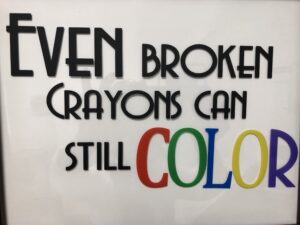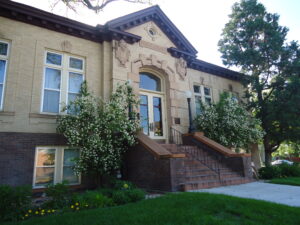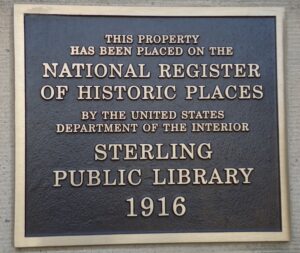 Some people, by nature, see the whole big picture. I’m not one of those; I notice the detail. If looking for a house to buy, I would notice nail holes in the wall and the construction of cabinets. Big picture people, intuitive, more than sensing like me, would see if the house felt spacious or if natural light filled the rooms.
Some people, by nature, see the whole big picture. I’m not one of those; I notice the detail. If looking for a house to buy, I would notice nail holes in the wall and the construction of cabinets. Big picture people, intuitive, more than sensing like me, would see if the house felt spacious or if natural light filled the rooms.
Andrew Carnegie must have been one of those intuitive types because one of his quotes was, “Let there be light.” He built his libraries with lots and lots of windows.
Maybe it’s because I once owned a Carnegie library, but I admire Andrew Carnegie. He was raised with a clear understanding of poverty but used his intelligence and opportunities to advance himself. He then used his wealth to benefit others.
I don’t admire one portion of his legacy. One of the ways he attained wealth was by paying low wages and not providing safe work environments. He supported unions and workers’ rights to strike for better conditions but allowed the killing of men who protested at his steel mills. Still, he took responsibility for the action and attempted to make restitution. He provided funds to build nearly 1700 libraries before he died. He said, “The man who dies rich dies disgraced.”
conditions but allowed the killing of men who protested at his steel mills. Still, he took responsibility for the action and attempted to make restitution. He provided funds to build nearly 1700 libraries before he died. He said, “The man who dies rich dies disgraced.”
He tried to right his wrong, and isn’t that the best any of us can do—clean our conscience by doing something good for the whole? Our mental health greatly benefits when we own our mistakes that hurt others and use what we have to heal their hurting.
Many times a week I acknowledge the efforts of my family, doctors, nurses, and friendly souls who guide me. We are not alone in our successes nor exempt from causing harm or distress to others.
We each have unique ways of seeing the world and, in the same sense, our way of giving and taking. Andrew Carnegie attained what he did because of the efforts of many, and in return, provided a reliable means of education, free of charge to every person.

I’m guessing what Carnegie did on his way up, even though justified in his mind at the time, caused him grief and sadness. It is called conscience. He likely died with some shame or guilt intact, but he made a positive difference in the end. Our Old Library in Sterling was one of the last he funded before he died in 1919. Aren’t we lucky?
One of his quotes, “If you want to be happy, set a goal that commands your thoughts, liberates your energy, and inspires your hopes.” He did that with his strength of seeing the whole big picture. I apply those sentiments by paying attention to detail. How do you achieve your goals and right your wrongs?
Until the next time: Live while you live.
Powered by WPeMatico